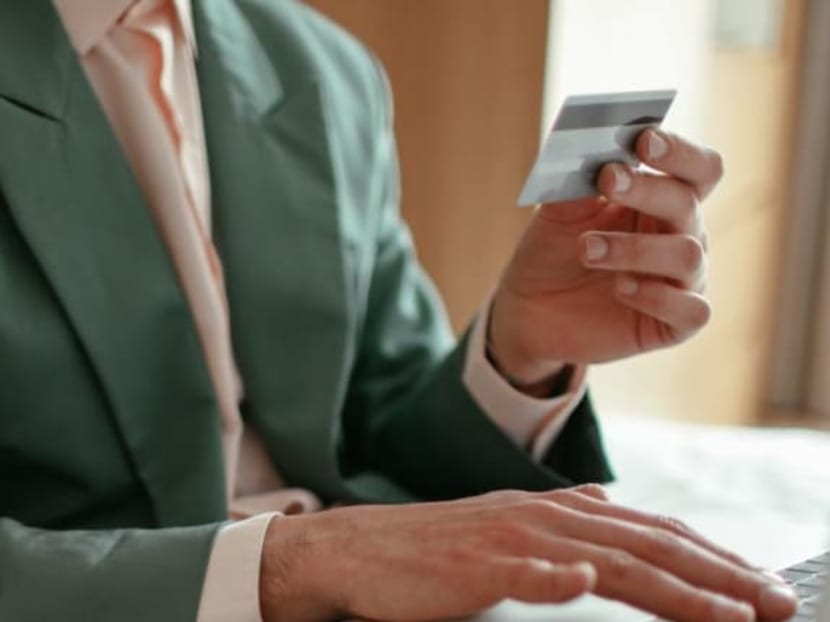Risks involved when buying luxury goods from ‘grey’ market, but shoppers say there's little choice

- Buyers of branded goods said they turn to resellers because it can be near-impossible to buy some popular items directly from boutique shops
- These products may not be in Singapore yet and some boutiques may offer them only to regular customers who are big spenders
- Some resellers said they have safeguards to ensure that their products are authentic
- The Ministry of Home Affairs advised people to have a “healthy scepticism” when shopping online and urged them to check sellers’ track records
SINGAPORE — Paying S$100,000 to an unauthorised online reseller of luxury items might seem foolhardy, especially when there is no guarantee that the seller is credible, but buyers of such goods say that such a risk is worth it.
They describe the buying process bound by an industry-wide “open secret” — where highly sought after brand-name products are reserved only for a select group of big spenders, which is why many turn to resellers instead.
These shoppers said that for an average customer without an extensive buying record at a boutique or authorised distributor, it can be near impossible to get their hands on coveted collections even after months on the waiting list.
That is because these products are often in limited supply and big spenders usually get priority over less frequent buyers, they added.
TODAY spoke to some shoppers and insiders after the recent case of a couple who allegedly swindled customers online.
The couple, now fugitives, fled Singapore earlier this month in a container truck after allegedly taking large orders for luxury items and not delivering on them.
Victims reportedly pre-ordered watches and luxury bags and paid large sums for them in full. They claimed that they were told the goods would arrive after some weeks but that did not happen.
There were 1,102 cases of e-commerce scams in Singapore from January to March this year, the Ministry of Home Affairs (MHA) said in response to TODAY’s queries. It did not say how many of these cases involved luxury goods.
MHA also did not say if the number of e-commerce cases has risen or fallen over the years, though it added that such scams have been among the top three most prevalent forms of scams in Singapore over the past few years.
TODAY spoke to 11 luxury goods buyers, collectors and dealers over the past week, many of whom said that it was difficult to obtain highly demanded products directly from the brand’s boutiques or authorised distributors.
LUXURY WATCHES
Watch collector Alvin Sim, 33, who works in the financial services and runs Youtube channel Watch Jelly, said that unless a buyer is a long-time customer who has amassed, for example, some S$200,000 to S$300,000 with an authorised watch distributor, it would be near-impossible to get popular luxury timepieces.
Instead, enquirers will be put on a waitlist and be told that they will receive a call when stock is available, which is unlikely to happen, he added.
“Unless you are a VVIP customer at (authorised distributors such as) The Hour Glass or Sincere Fine Watches… you will not be allocated these watches because they get a limited amount every quarter or year and they are more incentivised to reward their VVIP customers.”
This happens not just in Singapore but in many other countries as well, Mr Sim said.
Some popular watches include certain models of Rolex, Patek Philippe and Vacheron Constantin.
He also said that luxury watches have become even harder to get from boutiques especially over the past two to three years, which he believes is because of the growing demand for watches fuelled in part by the popularity of watch publications such as Hodinkee.
Watch collectors often refer to the sales of watches outside of authorised distributions as the "grey market", as opposed to a black market, which often connotes dealings in goods that are manufactured or sold illegally.
In the grey market, many watches often run at a hefty premium: A stainless steel Rolex Daytona, which has a retail price of about S$20,000, now costs about S$50,000 on the grey market after falling from about S$80,000 at the start of the year.
“The grey market for watches is huge because people would rather skip the wait and buy the watches from resellers,” said banker Ryan Koh, 33.
He added that the quickest way for buyers to get luxury watches would be to spend on “junk” or “unpopular” models that often do not hold their value in the secondary market.
Both Mr Koh and Mr Sim mostly buy sought-after items in person and rarely pay for them in advance, unlike the alleged victims in the recent case.
Mr Sim said that although many watch resellers list their products on e-marketplace platforms such as Carousell, they often have physical stores as well.
He owns more than 20 watches and bought just three of them online — two Rolex watches and a Patek Philippe costing about S$70,000 in total. The online buys were from a dealer in the United States and he had to pay for them in advance.
Mr Sim said that he does so only for watches that he cannot find in Singapore and chose to buy from this dealer because he has been running his business for decades and has a good reputation among watch collectors.
When buying from Singapore sellers, however, he said that it is not likely for shops to ask for cash in advance and that buyers should be wary when doing so.
Luxury watch dealer William Tan, manager of Watch Exchange, said that his shop does not take pre-orders and sells just watches that it already has in the store.
On occasion, he would ask for a S$1,000 deposit if customers want to reserve an item before heading to the shop to complete the purchase.
BRANDED FASHION
As for luxury fashion items, 49-year-old tutor Siti said that she buys from boutiques, but often turns to online resellers such as True Style SG, especially for new designs of bags, accessories or clothes that have not arrived in Singapore or for a product that has sold out here.
Ms Siti, who did not want to give her full name, said that many online resellers who run their businesses on social media channels often have staff members based in other countries to do the buying directly from the boutiques.
Ms Zee Mohd, co-founder of True Style Sg, told TODAY that she has special access to brands such as Balenciaga and Valentino. She sells them on Facebook and Instagram, and also e-marketplace Carousell.
For example, a collection called The Hacker Project, which was a collaboration between Balenciaga and Gucci, sold out in Singapore before its launch, but Ms Zee was able to get a “firsthand dip” because she is a VIP in a boutique in Europe.
However, for all online transactions, she requires a deposit of half the cost before she buys an item for a customer. She explained that this is to “confirm” the purchase and ensure that buyers do not back out of the deal.
In recent years, many of these businesses have started selling their products via livestreams where customers may ask questions or ask for close-up shots to look at items in greater detail.
Many of the buyers who spoke to TODAY said that they started buying luxury fashion products online since the Covid-19 pandemic made it difficult to travel overseas to shop. With no travel expenses, they had extra cash to spend.
One of them was crane operator Eddie Quek, 42, who buys branded T-shirts, bags and accessories every few months. He noted that prices online are usually only a little higher for limited-edition pieces and may even be cheaper for some products.
“It’s more convenient and I don’t have to go down to the boutique to get what I want,” he said.
In a market where there are rampant counterfeits, luxury goods resellers said that they have safeguards to ensure that their products are genuine.
Ms Julie Er, owner of branded goods shop The Attic Place located at Far East Shopping Centre, said that she always verifies the source of the products she purchases for sale, including checking that the receipts are in order.
She also collects the identity card details of sellers, adding that they need to sign a letter of undertaking that if the product is not authentic, they have to refund the money and pay an extra administrative charge.
Ms Annie Ma, owner of online secondhand fashion reseller Luxury Lover, which has a physical shop at Far East Plaza, said that she issues a lifetime guarantee that the products she sells are genuine. She also encourages her customers to meet in person to view the product before buying.
To ensure that products are delivered, some resellers such as Lovelotsluxury rely on its own staff members to transport high-value products to customers who opt for delivery. For overseas orders, it offers insurance coverage.
TOO GOOD TO BE TRUE? COULD BE A SCAM
The founder of online branded goods reseller SG Luxury Bags Marketplace, who wanted to be known only as Mr Mak, said that buyers may opt for services such as Entrupy, a mobile application that authenticates products through photos.
Mr Koh, the watch collector, said that when he buys products from individual resellers, he will arrange to meet at an independent watch authentication shop in Lucky Plaza shopping centre on Orchard Road before he makes the purchase.
MHA said that it has pushed out initiatives such as a new rating system for e-commerce platforms based on the anti-scam measures they have in place.
“We urge the public to practise healthy scepticism and to verify the legitimacy of online sellers, such as by checking the seller’s track record, reliability and reviews before making payment,” the ministry told TODAY.
“If a deal appears too good to be true, it could be a scam.”
It added that buyers should make use of secure payment options within the online platforms if available when paying online, or choose in-person transactions and make payment only after receiving the items.













